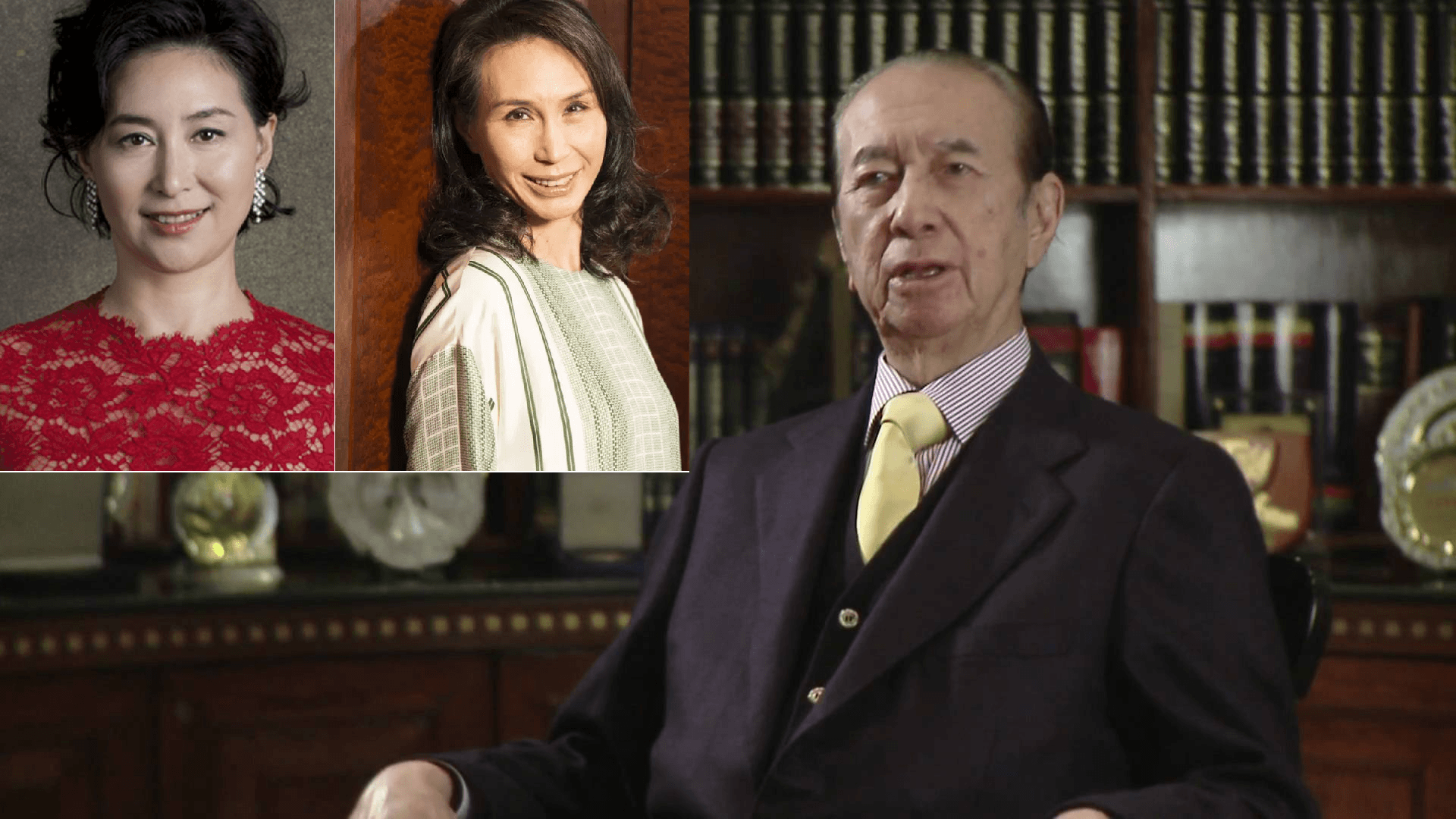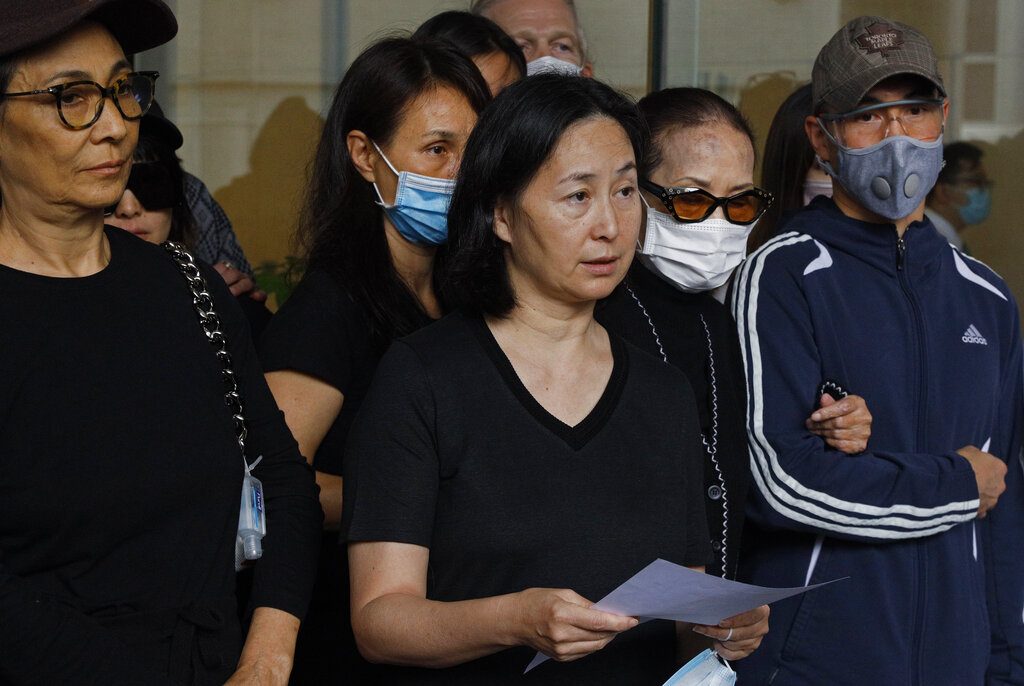May 30, 2020 Macau casino magnate Stanley Ho dies aged 98 They married in the 1940s, giving Ho privileged access to the colony's tight-knit Macanese community. Angela Ho, daughter of Ho Hung-sun and Clementina. Macao casino owner Stanley Ho dies at 98 Macao tycoon Stanley Ho poses during an event to celebrate the 70th anniversary of Hong Kong's Emperor Entertainment Group, in Hong Kong, Sept.
- Macau Casino Owner Hotels
- Macau Casino Owner Ho Chi Minh
- Macau Casino Owner Ho Slot Car
- Macau Casino Owner Ho Casino
Stanley Ho, who dominated Macau's casino industry for four decades before the market was opened for competition in 2002, died today at the age of 98, according to a report from China Central Television.



Ho was known as the King of Gambling, though he professed never to gamble himself. His company, Sociedade de Turismo e Diversões de Macau (SJM), controls 20 of Macau's 38 casinos as well as a string of other business interests that extend his reach into most corners of life.
These include the Macau Jockey Club, Shun Tak Holdings, which operates the ferries and hydrofoils shipping gamblers into the territory, and a stake in Macau's international airport. He amassed a personal fortune of about $3.1bn, according to Forbes, but his colourful life has not been without its hardships.
Can't read my, can't read my No, he can't read my poker face (She's got me like nobody) Can't read my, can't read my No, he can't read my poker face (She's got me like nobody).

Ho was born in Hong Kong in 1921 to the powerful Ho Tung clan. He was the ninth of 13 children and in his early years lived a life of wealth and privilege. However, the great depression bankrupted his father, leaving his family in poverty and two of his brothers committed suicide.

In a rare interview with CNN in 2004, Ho said the experience was the kick start he needed to stand on his own two feet and improve his mediocre school grades. Ho won a scholarship to Hong Kong University, though his troubles weren't over. He was forced to abandon his studies and fled to Macau in 1942 after the Japanese invaded. It was there he found his feet and his entrepreneurial talent and a sharp reversal in fortunes.
His fortune came from running luxury goods into China during the war. He also set up a kerosene company in 1943 and later benefited from Hong Kong's post-war construction boom. He used those profits to win Macau's gambling monopoly rights in 1962, which he enjoyed for four decades, presiding over the world's highest-grossing casino.
Under the surface though, tensions were bubbling, finally reaching a boiling point in the mid-nineties, when Triads fought openly on the streets in a battle for a slice of the lucrative industry. When Portuguese rule ended in 1999, the incoming administration decided a shake-up in the industry was needed. In 2002, it broke up Ho's monopoly, awarding three new licences, which subsequently morphed into six through a series of sub-concessions.
From a solid industry, Macau's gaming business became stellar, overtaking Las Vegas in 2006 to become the world's largest gambling hub, hitting a peak of MOP360.7bn in 2013.
Ho said he welcomed the added competition, though his company has been steadily losing its dominant market position, with Las Vegas Sands' unit, Sands China, taking the top slot. Analysts say that decline is likely to continue, at least until the opening of its new Lisboa Palace IR in Cotai, which has been delayed until 2019. Most of SJM's current properties are small, located on Peninsula Macau and seem outdated compared with the ritzy new resorts on the strip.
However, if SJM appears to be losing traction, it would be a mistake to think the Ho family itself is declining in influence in Macau. Ho's private life has also been colourful, with four wives and 17 children.
His fourth wife, Angela Leong On Kei, is the managing director and largest shareholder in SJM, while his son Lawrence Ho heads up Melco Resorts and Entertainment, another of Macau's six concessionaires. The company operates the City of Dreams, Mocha Clubs and Studio City in Macau and the City of Dreams Manila in the Philippines. It firmly has its sights on obtaining a licence in Japan.
His daughter Pansy Ho is co-chair of MGM China and its biggest single shareholder with a 22.5 per cent stake. It was this relationship that set alarm bells ringing among US regulators, bringing into the open speculation that Ho's casinos had long had a cosy relationship with Asian organised crime gangs.
A 2009 special report by New Jersey's Division of Gaming Enforcement for the Casino Control Commission found Ho was not a suitable person under the state's regulations. By extension, it also found Pansy unsuitable due to her close ties to her father, in particular when it came to sources of finance. Interestingly though, Nevada regulators did not come to the same conclusion about Pansy, despite concerns about the elder Ho's links.
When not working, Ho was a keen sports enthusiast and a skilled tennis player and dancer. He regularly appeared on dance shows for charity fundraisers and has sponsored numerous dance performances in Hong Kong and Macau. He was also on the board of a wide number of local hospital and social charities.
In 2009 he fell at his home and required brain surgery, leaving him confined to a wheelchair.
His death ends a chapter in Macau's gaming history.
Source: Asia Gaming Brief
By Farah Master
HONG KONG (Reuters) - Macau gambling king Stanley Ho, who built a business empire from scratch in the former Portuguese colony and became one of Asia's richest men, died on Tuesday at the age of 98.
The flamboyant tycoon, who loved to dance and advised his nearest and dearest to shun gambling, headed one of the world's most lucrative gaming businesses through his flagship firm, SJM Holdings, valued at about $6 billion.
Shielded from challengers by a four-decade monopoly on gambling, Ho helped transform Macau from a sleepy peninsula dotted with seedy, windowless gambling dens into the world's biggest casino centre.
But Ho's interests in Macau, on the coast of southeast China across the mouth of the Pearl River opposite Hong Kong, were not limited to the roulette wheels and baccarat tables.
His privately held company, Sociedade de Turismo e Diversões de Macau, or STDM, has stakes in everything from luxury hotels to helicopters and horse racing.
Ho lost his gambling monopoly in 2002 when Macau was opened up to competition, three years after the enclave returned to Chinese rule. STDM's main asset, SJM, is facing increasing competition from the other five licensed operators in Macau including U.S. billionaire Sheldon Adelson's Sands China.
U.S. regulators said Ho was linked to triads, or criminal gangs, which he denied. However, Ho earned the adoration of many Hong Kong and Macau residents for his swashbuckling business style and his philanthropic work.
He spearheaded what is known in Macau as the junket VIP system, whereby middlemen act on behalf of casinos by extending credit to gamblers and taking responsibility for collecting debts.
Flitting between Hong Kong and Macau by helicopter, the dapper Ho loved tennis and ballroom dancing - his fourth wife was a dance teacher - well into his 80s. He courted the limelight and frequently graced the celebrity gossip columns.
Macau Casino Owner Hotels
He had four wives and 17 known children, and was forced to restructure his business after a legal battle erupted within the family in 2012 over his fortune.
'POOR MAN'
Born in Hong Kong in 1921 and related to the wealthy Ho Tung family of Chinese and European descent, Ho's privileged upbringing was short-lived. At 13, his father lost everything in the stock market and fled to Vietnam, abandoning his wife and children.
Ho was determined to succeed and earned a place at the University of Hong Kong. Though World War Two intervened, his luck held. He left school and worked for seven days for the Air Raid Service Department before the Japanese captured Hong Kong.
'I earned HK$10 out of the seven days .. then I went to Macau,' he once told Reuters in an interview.
'I was a very poor man,' he said. 'I started with only HK$10. That was my capital.'
He got a job with the Macau government, bartering goods with the Japanese. The experience led to his own trading company and he became a millionaire.
In the early 1960s, he bid for the Macau gaming monopoly being offered by the Portuguese in its largely forgotten Asian outpost.

Ho was known as the King of Gambling, though he professed never to gamble himself. His company, Sociedade de Turismo e Diversões de Macau (SJM), controls 20 of Macau's 38 casinos as well as a string of other business interests that extend his reach into most corners of life.
These include the Macau Jockey Club, Shun Tak Holdings, which operates the ferries and hydrofoils shipping gamblers into the territory, and a stake in Macau's international airport. He amassed a personal fortune of about $3.1bn, according to Forbes, but his colourful life has not been without its hardships.
Can't read my, can't read my No, he can't read my poker face (She's got me like nobody) Can't read my, can't read my No, he can't read my poker face (She's got me like nobody). Can't read my, can't read my No, he can't read my poker face (She's got me like nobody) Can't read my, can't read my No, he can't read my poker face.
Ho was born in Hong Kong in 1921 to the powerful Ho Tung clan. He was the ninth of 13 children and in his early years lived a life of wealth and privilege. However, the great depression bankrupted his father, leaving his family in poverty and two of his brothers committed suicide.
In a rare interview with CNN in 2004, Ho said the experience was the kick start he needed to stand on his own two feet and improve his mediocre school grades. Ho won a scholarship to Hong Kong University, though his troubles weren't over. He was forced to abandon his studies and fled to Macau in 1942 after the Japanese invaded. It was there he found his feet and his entrepreneurial talent and a sharp reversal in fortunes.
His fortune came from running luxury goods into China during the war. He also set up a kerosene company in 1943 and later benefited from Hong Kong's post-war construction boom. He used those profits to win Macau's gambling monopoly rights in 1962, which he enjoyed for four decades, presiding over the world's highest-grossing casino.
Under the surface though, tensions were bubbling, finally reaching a boiling point in the mid-nineties, when Triads fought openly on the streets in a battle for a slice of the lucrative industry. When Portuguese rule ended in 1999, the incoming administration decided a shake-up in the industry was needed. In 2002, it broke up Ho's monopoly, awarding three new licences, which subsequently morphed into six through a series of sub-concessions.
From a solid industry, Macau's gaming business became stellar, overtaking Las Vegas in 2006 to become the world's largest gambling hub, hitting a peak of MOP360.7bn in 2013.
Ho said he welcomed the added competition, though his company has been steadily losing its dominant market position, with Las Vegas Sands' unit, Sands China, taking the top slot. Analysts say that decline is likely to continue, at least until the opening of its new Lisboa Palace IR in Cotai, which has been delayed until 2019. Most of SJM's current properties are small, located on Peninsula Macau and seem outdated compared with the ritzy new resorts on the strip.
However, if SJM appears to be losing traction, it would be a mistake to think the Ho family itself is declining in influence in Macau. Ho's private life has also been colourful, with four wives and 17 children.
His fourth wife, Angela Leong On Kei, is the managing director and largest shareholder in SJM, while his son Lawrence Ho heads up Melco Resorts and Entertainment, another of Macau's six concessionaires. The company operates the City of Dreams, Mocha Clubs and Studio City in Macau and the City of Dreams Manila in the Philippines. It firmly has its sights on obtaining a licence in Japan.
His daughter Pansy Ho is co-chair of MGM China and its biggest single shareholder with a 22.5 per cent stake. It was this relationship that set alarm bells ringing among US regulators, bringing into the open speculation that Ho's casinos had long had a cosy relationship with Asian organised crime gangs.
A 2009 special report by New Jersey's Division of Gaming Enforcement for the Casino Control Commission found Ho was not a suitable person under the state's regulations. By extension, it also found Pansy unsuitable due to her close ties to her father, in particular when it came to sources of finance. Interestingly though, Nevada regulators did not come to the same conclusion about Pansy, despite concerns about the elder Ho's links.
When not working, Ho was a keen sports enthusiast and a skilled tennis player and dancer. He regularly appeared on dance shows for charity fundraisers and has sponsored numerous dance performances in Hong Kong and Macau. He was also on the board of a wide number of local hospital and social charities.
In 2009 he fell at his home and required brain surgery, leaving him confined to a wheelchair.
His death ends a chapter in Macau's gaming history.
Source: Asia Gaming Brief
By Farah Master
HONG KONG (Reuters) - Macau gambling king Stanley Ho, who built a business empire from scratch in the former Portuguese colony and became one of Asia's richest men, died on Tuesday at the age of 98.
The flamboyant tycoon, who loved to dance and advised his nearest and dearest to shun gambling, headed one of the world's most lucrative gaming businesses through his flagship firm, SJM Holdings, valued at about $6 billion.
Shielded from challengers by a four-decade monopoly on gambling, Ho helped transform Macau from a sleepy peninsula dotted with seedy, windowless gambling dens into the world's biggest casino centre.
But Ho's interests in Macau, on the coast of southeast China across the mouth of the Pearl River opposite Hong Kong, were not limited to the roulette wheels and baccarat tables.
His privately held company, Sociedade de Turismo e Diversões de Macau, or STDM, has stakes in everything from luxury hotels to helicopters and horse racing.
Ho lost his gambling monopoly in 2002 when Macau was opened up to competition, three years after the enclave returned to Chinese rule. STDM's main asset, SJM, is facing increasing competition from the other five licensed operators in Macau including U.S. billionaire Sheldon Adelson's Sands China.
U.S. regulators said Ho was linked to triads, or criminal gangs, which he denied. However, Ho earned the adoration of many Hong Kong and Macau residents for his swashbuckling business style and his philanthropic work.
He spearheaded what is known in Macau as the junket VIP system, whereby middlemen act on behalf of casinos by extending credit to gamblers and taking responsibility for collecting debts.
Flitting between Hong Kong and Macau by helicopter, the dapper Ho loved tennis and ballroom dancing - his fourth wife was a dance teacher - well into his 80s. He courted the limelight and frequently graced the celebrity gossip columns.
Macau Casino Owner Hotels
He had four wives and 17 known children, and was forced to restructure his business after a legal battle erupted within the family in 2012 over his fortune.
'POOR MAN'
Born in Hong Kong in 1921 and related to the wealthy Ho Tung family of Chinese and European descent, Ho's privileged upbringing was short-lived. At 13, his father lost everything in the stock market and fled to Vietnam, abandoning his wife and children.
Ho was determined to succeed and earned a place at the University of Hong Kong. Though World War Two intervened, his luck held. He left school and worked for seven days for the Air Raid Service Department before the Japanese captured Hong Kong.
'I earned HK$10 out of the seven days .. then I went to Macau,' he once told Reuters in an interview.
'I was a very poor man,' he said. 'I started with only HK$10. That was my capital.'
He got a job with the Macau government, bartering goods with the Japanese. The experience led to his own trading company and he became a millionaire.
In the early 1960s, he bid for the Macau gaming monopoly being offered by the Portuguese in its largely forgotten Asian outpost.
Ho won the concession, built a harbour, added high-speed boats to lure Hong Kong's avid gamblers and created the cash cow that made his empire possible.
Macau Casino Owner Ho Chi Minh
As a result of the company restructuring that followed the family legal battle, Ho dropped off the ranks of Hong Kong's richest people for the first time in many years.
Angela Leong, his fourth wife and a co-chairperson at SJM, has seen her net worth jump to $4.1 billion, according to Forbes.
Some of Ho's children have become successful gaming operators in their own right. Daughter Pansy is the co-chairperson of MGM Resorts' Macau unit, while son Lawrence runs Melco Resorts & Entertainment.
Macau Casino Owner Ho Slot Car
Among his other children, Josie, born to Ho's second wife, has forged a career as a movie star, appearing in the 2011 thriller 'Contagion'.
SJM's most lavish casino, the 12-year-old Grand Lisboa, a 48-story building shaped like a lotus flower, remains one of Macau's most prominent destinations.
But, ironically, the casino king did not gamble.
'I have always told my children and my good friends: 'For God's sake, never gamble heavily and if you can avoid it, don't ever gamble',' he told the Far Eastern Economic Review in 1999.
Macau Casino Owner Ho Casino
(Additional reporting by James Pomfret, Clare Jim, Donny Kwok; Editing by Stephen Coates, Anne Marie Roantree and Christian Schmollinger)
